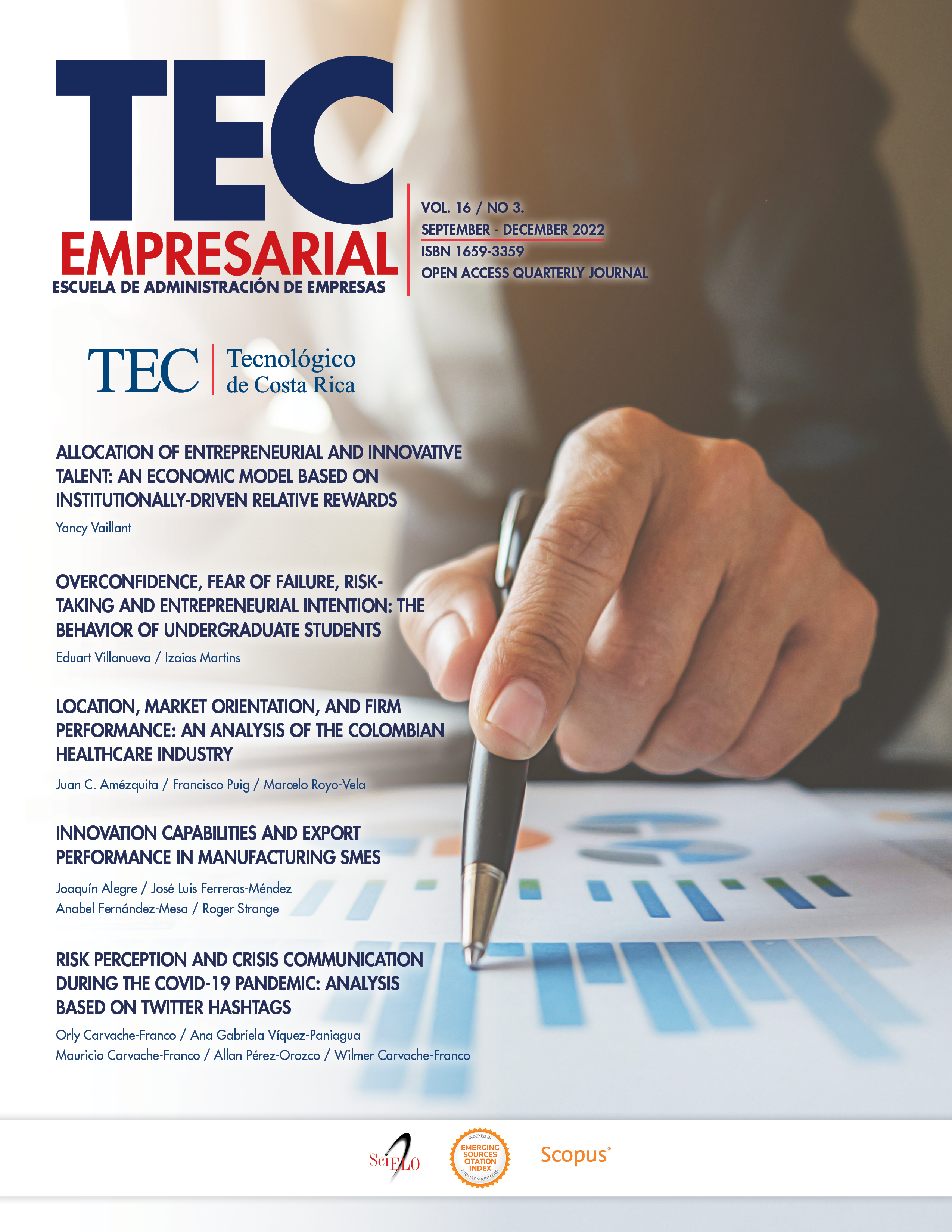Allocation of entrepreneurial and innovative talent: An economic model based on institutionally-driven relative rewards
Main Article Content
Abstract
To master the force of innovation that sparks economic prosperity and growth along the lines of Schumpeterian creative destruction, it is important to understand what guides the entrepreneurial and innovative talent needed to fuel this spark. This paper presents an economic model that mathematically develops and visually represents the entrepreneurial career decisions of individuals and the allocation of entrepreneurial talent across an economy. The model is based on an institutional theoretical framework, where the external formal or informal constraints (institutions) of local society guide the choices of individuals towards innovative entrepreneurial careers. This model closely derives from prior relative reward models developed by Acemoglu (1995) to explain how the local relative rewards structure governs the entrepreneurial career decisions of individuals, and these decisions determine the allocation of entrepreneurial and innovative talent in an economy.
Article Details
The digital version of the journal is registered under the BY-NC-ND 4.0 Creative Commons license. Therefore, this work may be copy and redistribute the material in any medium or format, as long as you give appropriate credit, provide a link to the license, and indicate if changes were made. You may do so in any reasonable manner, but not in any way that suggests the licensor endorses you or your use.
The authors keep the copyright and give the journal the right of the first publication and the possibility of editing, reproducing, distributing, exhibiting and communicating in the country and abroad through printed and electronic means. On the other hand, the author declares to assume the commitment on any litigation or claim related to the rights of intellectual property, exonerating of responsibility to the Business School of the Costa Rica Institute of Technology.


